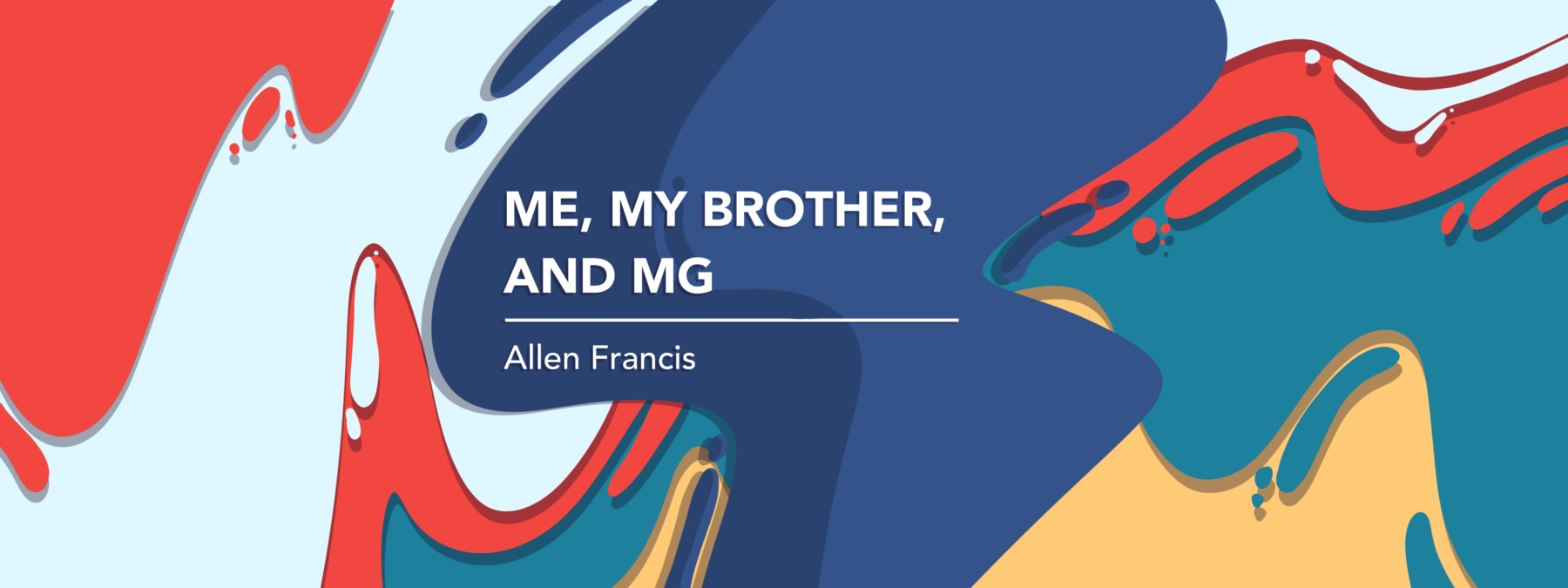A discussion about getting help from others while living with MG
Family support was crucial for this columnist's brother
Written by |

I abhor asking for help. That doesn’t mean I’ve never asked for help in my life, though. Far from it.
As a grown man, I pride myself on trying to do the best I can on my own. I like believing in this ideal, but it is far from the truth. We all need help sometimes, and some need more help than others.
I was discussing this idea with my twin brother, Aaron, when I realized how insensitive I must’ve sounded. Aaron was diagnosed with myasthenia gravis (MG) in 1999, when he was 24. He’s needed help ever since.
He and I didn’t talk about his MG for over two decades. I never appreciated how much physical help he needed sometimes. I think I could’ve helped him more when he was struggling in those early years.
Did anything positive come from it?
Aaron and I talk about a lot of things, such as comic books, sports, and life in general. But sometimes it’s hard to chat with him about his MG, because it can be emotionally draining. I feel like I ask him, “What is it like having MG?” a different way every time. It reminds me of how long he’s had to emotionally grapple with MG all alone.
As we were chatting recently, I asked him if anything positive had ever come from his MG diagnosis. I immediately felt stupid for asking. He waited a beat, and then confidently exclaimed, “No!”
We laughed for a moment, and then he said that if he’d ever experienced anything positive from MG, it was help from family when he needed it.
In those early years, Aaron’s arms and hands would suddenly go limp. He’d experience extreme MG flare-ups. Our mother used to help him tie his shoelaces and button his shirts. Our sisters also helped.
He told me how our sister Renee would help him wash his hair because he couldn’t do it. He said that while he appreciated the help, there were times when these experiences nearly broke him.
I got married and moved out a few years after Aaron got MG. A few years after that, I got divorced and moved back home. I didn’t help Aaron as much as I could or should have. Also, I couldn’t verbally call Aaron disabled until recently.
He had been a manual laborer, a vocation he can never do again because of his MG muscle weakness. Aaron used to be outgoing with his friends, and now he is a homebody. He tells me that his flare-ups aren’t that bad now, but I feel like he is downplaying the issue, either for my sake or his own.
I asked what else he had needed help with. He told me he couldn’t eat hero sandwiches for a while, because he couldn’t bite or chew the bakery bread that we used to make sandwiches. He also said he needed help peeling oranges and bananas.
He told that he’s made peace with the fact that he might one day require supplemental oxygen or need to be hospitalized.
Our family still helps him today. When he recently had strabismus surgery to correct severe eye misalignment, our sister Sharon sat with him for hours while he waited for the procedure.
Sometimes when he’s going for a walk outdoors, he’ll go with a relative in case he falls. He takes a lot of precautions now.
He told me that needing help used to make him angry, but now he greatly appreciates it.
It was hard listening to all of this without feeling pity, which Aaron also hates. So I feel grateful that he has help from his family. When I got divorced and lost my job, I got help from our family for several years, especially from Aaron. And that occurred during the worst period of his MG issues.
I live in the Philippines now, while Aaron still lives in our native New York City. We have video calls or text each other every week. We talk more now than we ever did when I was in New York, especially about things that had previously been left unsaid. I wish I were there to physically help him now. Still, we help each other emotionally, more than ever, when we talk.
Note: Myasthenia Gravis News is strictly a news and information website about the disease. It does not provide medical advice, diagnosis, or treatment. This content is not intended to be a substitute for professional medical advice, diagnosis, or treatment. Always seek the advice of your physician or other qualified health provider with any questions you may have regarding a medical condition. Never disregard professional medical advice or delay in seeking it because of something you have read on this website. The opinions expressed in this column are not those of Myasthenia Gravis News or its parent company, Bionews, and are intended to spark discussion about issues pertaining to myasthenia gravis.



Leave a comment
Fill in the required fields to post. Your email address will not be published.